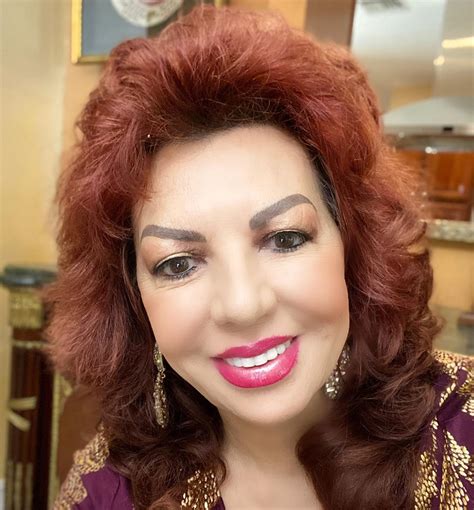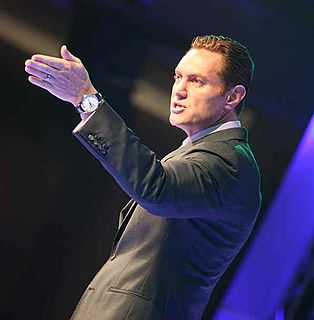A Quote by Eckhart Tolle
When each thought absorbs your attention completely, it means you identify with the voice in your head. Thought then becomes invested with a sense of self. This is the ego, a mind-made "me." That mentally constructed self feels incomplete and precarious. That's why fearing and wanting are its predominant emotions and motivating forces.
Related Quotes
In Buddhist ideology, the conventional self is that which is constructed in a way by the use of the pronoun, and when you realize there is no absolute ego there, no disconnected one, self, or ego, then that actually strengthens your conventional ego. It does so in the sense that then you realize it's a construction, and you can strengthen it in order to help others, or do whatever you're trying to do, it's not like you no longer know who you are. Then you can organize your behavior by using your ego, as it's now the pronoun.
Then ego goes on growing, because the society needs you as an ego, not as a Self. The Self is irrelevant for the society; your periphery is meaningful. And there are many problems. The ego can be taught and the ego can be made docile and the ego can be forced to be obedient. The ego can be made to adjust, but not the Self. The Self cannot be taught, the Self cannot be forced. The Self is intrinsically rebellious, individual. It cannot be made a part of society.
In the egoic state, your sense of self, your identity, is derived from your thinking mind - in other words, what your mind tells you about yourself: the storyline of you, the memories, the expectations, all the thoughts that go through your head continuously and the emotions that reflect those thoughts. All those things make up your sense of self.
Happiness is your real nature. You identify with yourself with the body and mind, feel it's limitations, and suffer. Realize your true self in order to open the store of happiness. That true self is the reality, the Supreme Truth, which is the self of all the world you now see, the self of all the selves, the One real, the Supreme, the Eternal self - as distinct from the ego or the bodily idea for the self.
So the single most vital step on your journey toward enlightenment is this: learn to disidentify from your mind. Every time you create a gap in the stream of mind, the light of your consciousness grows stronger. One day you may catch yourself smiling at the voice in your head, as you would smile at the antics of a child. This means that you no longer take the content of your mind all that seriously, as your sense of self does not depend on it.
God dwells in you, as you, and you don't have to 'do' anything to be God-realized or Self-realized,
it is already your true and natural state.
Just drop all seeking, turn your attention inward,
and sacrifice your ego mind to the One Self radiating in the Heart of your very being.
For this to be your own presently lived experience,
Self-Inquiry Meditation is a direct and immediate way.
The breath is a powerful toolit creates a bridge between the subconscious and conscious mind, and connects the mind and the body. When you sit and breathe deeply, your physiology will change, and both your mind and your body will relax and become open. Breathing helps clear your head of the thoughts of the emotions and ego, and it allows you to get closer to your true self.
The self you have betrayed is your mind; self-esteem is reliance on one’s power to think. The ego you seek, that essential “you” which you cannot express or define, is not your emotions or inarticulate dreams, but your intellect, that judge of your supreme tribunal whom you’ve impeached in order to drift at the mercy of any stray shyster you describe as your “feeling.”
You are a creator; you create with your every thought. You often create by default, for you are getting what you are giving your attention to wanted or unwanted but you know by how it feels if what you are getting (creating) is what you are wanting or if it is not what you are wanting. (Where is your attention focused?)
The child is born with a Self but not with an ego. The child develops the ego. As he becomes more and more social and related, ego develops. This ego is just on your periphery where you are related with others - just on the boundary of your being. So ego is the periphery of your being, and Self is the center. The child is born with a Self, but unaware. He is a Self, but he is not conscious of the Self.
The more you think about your own self, the more self-centred you are, the more trouble even small problems can create in your mind. The stronger your sense of 'I', the narrower the scope of your thinking becomes; then even small obstacles become unbearable. On the other hand, if you concern yourself mainly with others, the broader your thinking becomes, and life's inevitable difficulties disturb you less.
"Transcending the ego" thus actually means to transcend but include the ego in a deeper and higher embrace, first in the soul or deeper psychic, then with the Witness or primordial Self, then with each previous stage taken up, enfolded, included, and embraced in the radiance of One Taste. And that means we do not "get rid" of the small ego, but rahter, we inhabit it fully, live it with verve, use it as the necessary vehicle through which higher truths are communicated. Soul and Spirit include body, emotions, and mind; they do not erase them.
Forget about willpower. It's time for why-power. Your choices are only meaningful when you connect them to your desires and dreams. The wisest and most motivating choices are the ones aligned with that which you identify as your purpose, your core self, and your highest values. You've got to want something, and know why you want it, or you'll end up giving up too easily.





























